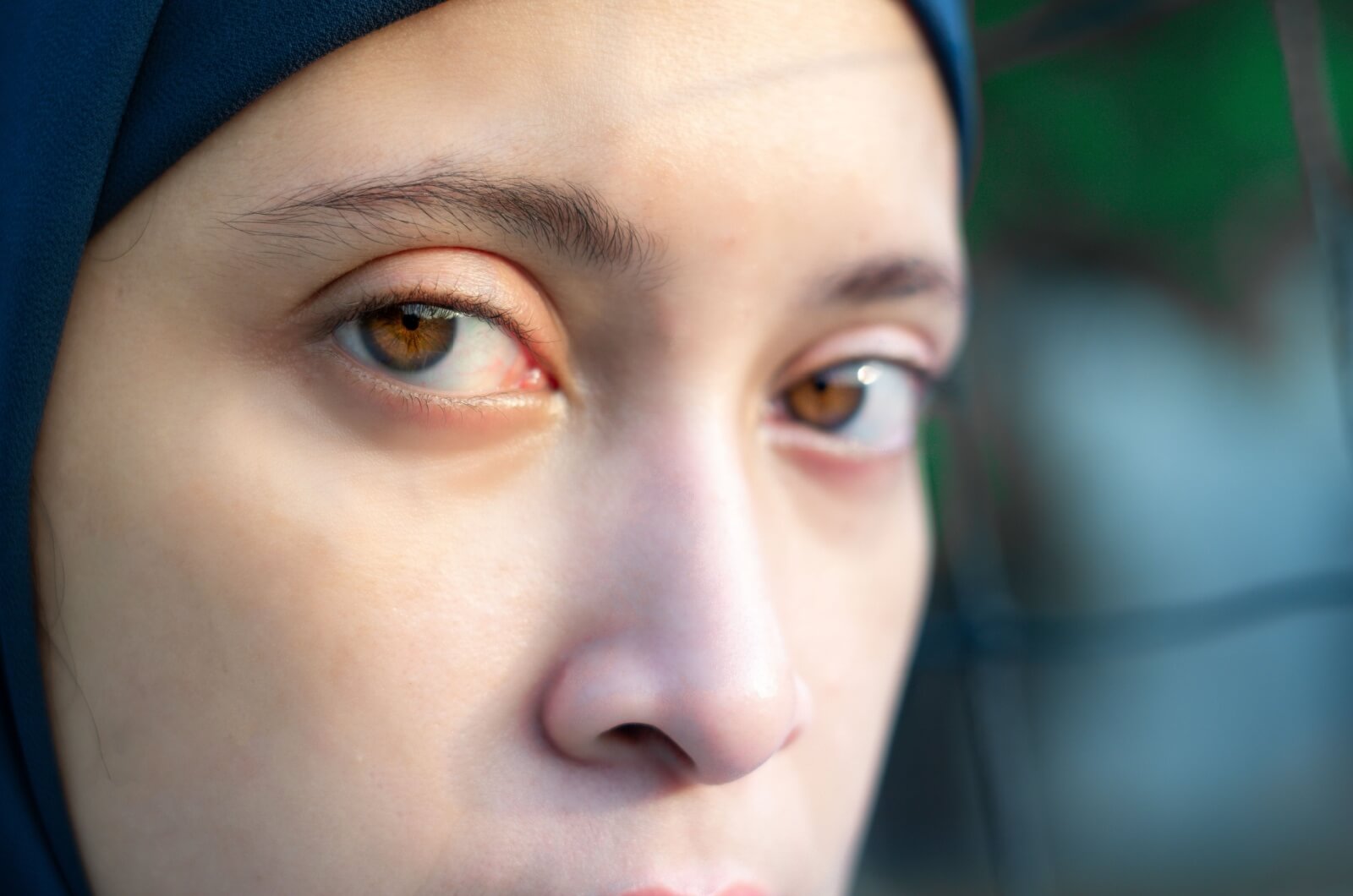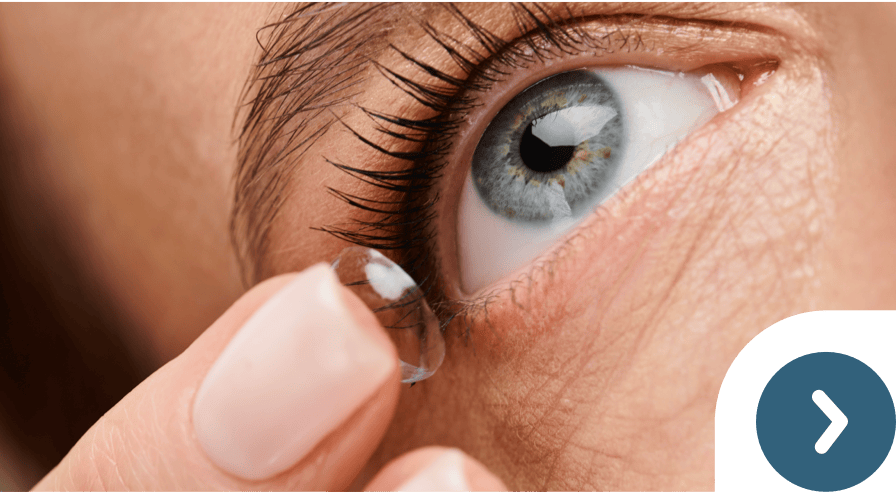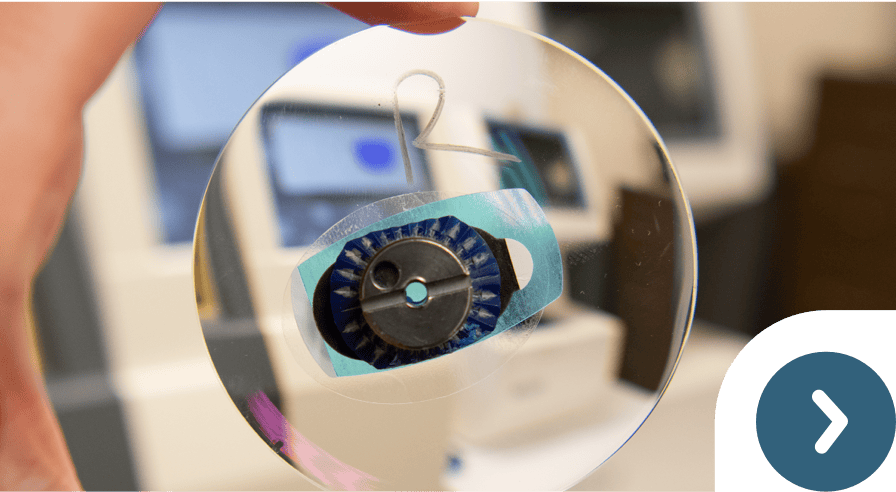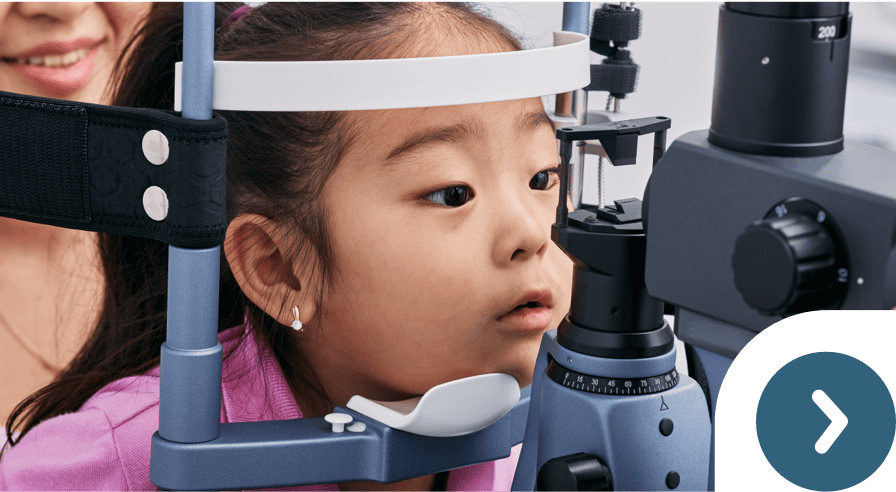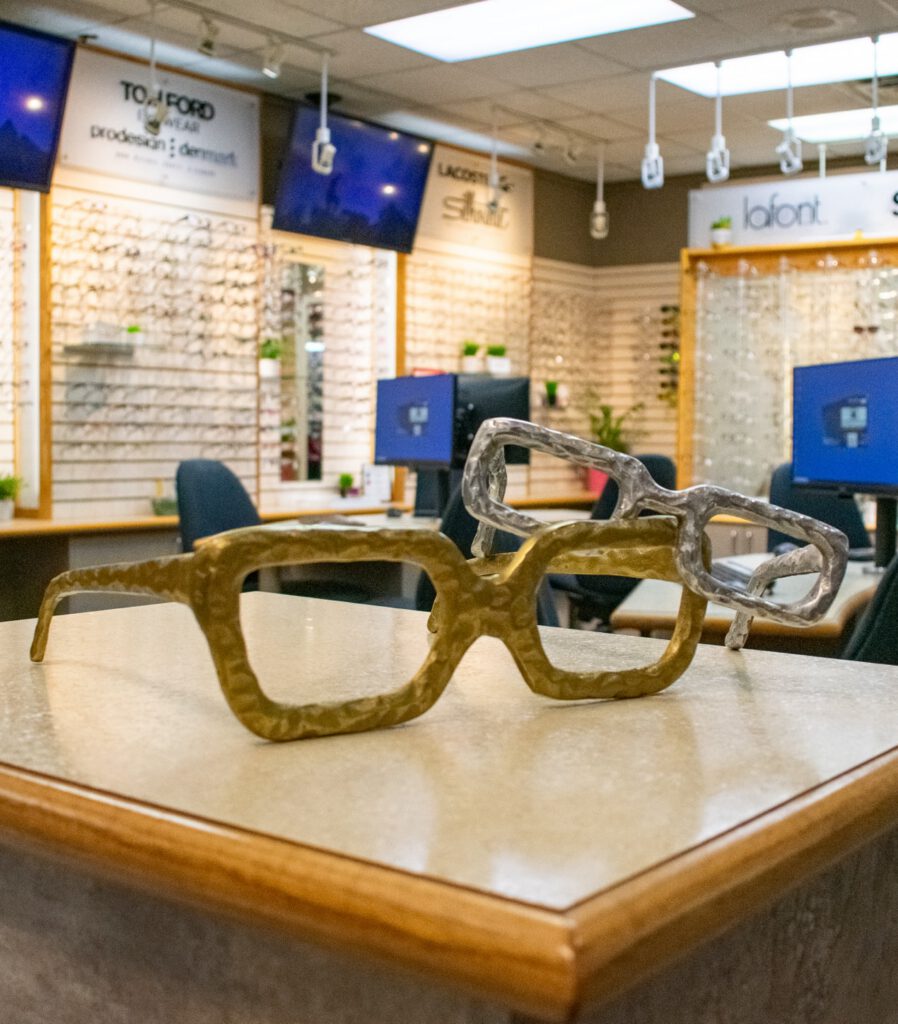Dry eye syndrome is a common and often chronic condition that affects millions of people around the world. While it might seem like a minor inconvenience, dry eye can lead to significant discomfort and even impact your vision.
One of the symptoms that sufferers frequently report is blurry vision. But can dry eye cause blurry vision? When your eyes don’t produce enough tears or the tears evaporate too quickly, the tear film becomes unstable. This instability can lead to inflammation and damage to the surface of the eye, resulting in blurred vision.
At Westmount Optometrists, we pride ourselves on offering comprehensive eye care tailored to each individual’s needs. Our clinic and experienced practitioners make sure you receive the highest quality service, from routine eye exams to specialized treatments for conditions like dry eye syndrome. We’re committed to helping you achieve optimal eye health and clear vision. Trust Westmount Optometrists for a clearer, brighter future.
Understanding Dry Eye Syndrome
Dry eye syndrome occurs when your eyes don’t produce enough tears or when your tears evaporate too quickly. Tears are composed of a complex mixture of water, oils, and mucus, each playing a vital role in maintaining eye health. When the balance of these components is disrupted, it can lead to tear film instability and insufficient lubrication. This inadequacy results in exposed areas on the surface of the eye, making it vulnerable to irritants and infection.
As a consequence, the surface of the eye can become inflamed, leading to uncomfortable symptoms such as redness, itching, and a gritty sensation. Over time, this chronic inflammation can damage the delicate tissues of the cornea and conjunctiva, causing further discomfort and vision problems.
Tears are crucial for more than just moisture—they act as a barrier against environmental contaminants like dust and smoke, provide essential nutrients to the eye tissues, and support the healing of minor injuries on the eye’s surface. Without a stable tear film, the eye cannot function optimally, resulting in compromised vision clarity and overall eye health.
Causes of Dry Eye
There are multiple reasons why someone might develop dry eye syndrome, including:
- Age: As you age, tear production tends to decrease.
- Medical Conditions: Conditions like diabetes, rheumatoid arthritis, and thyroid disorders can contribute to dry eyes.
- Medications: Certain medications, such as antihistamines, decongestants, and antidepressants can reduce tear production.
- Environmental Factors: Exposure to wind, smoke, or dry air can increase tear evaporation.
- Screen Time: Prolonged use of computers and mobile devices can reduce blinking rates, leading to dry eyes.
How Dry Eye Leads to Blurry Vision
Blurry vision can occur as a result of dry eye in several ways:
Tear Film Instability: The tear film is the first layer of the eye’s surface and plays a crucial role in maintaining clear vision. It helps to smooth out the optical surface of the cornea. When the tear film is unstable due to dry eye, it can break up quickly, leading to fluctuations in vision and causing blurriness.
Inflammation: Chronic dry eye can lead to inflammation on the surface of the eye. This inflammation can cause damage to the corneal cells, disrupting the clarity of the cornea and resulting in blurred vision.
Corneal Damage: In severe cases, persistent dry eye can lead to more significant damage to the cornea. This can cause scarring or other alterations to the shape of the cornea, which can further impair vision.
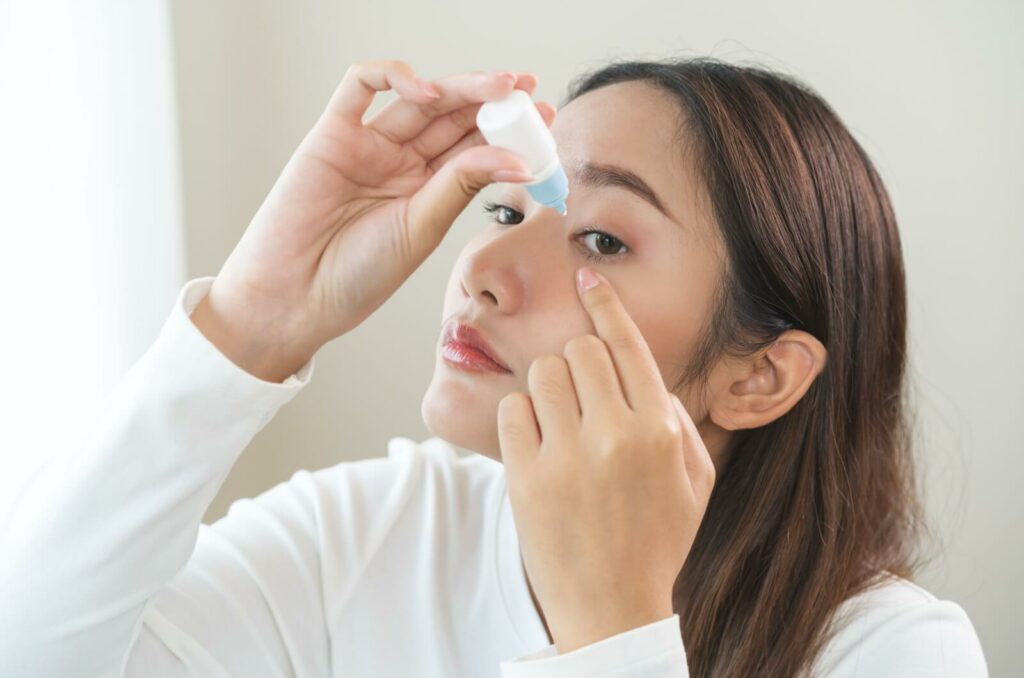
Diagnosing & Treating Dry Eye
If you suspect that your blurry vision is due to dry eye, it’s important to consult with an eye care professional. They can conduct a thorough examination to diagnose the condition and recommend appropriate treatments.
Treatment Options
- Artificial Tears: Over-the-counter artificial tear solutions can help lubricate the eyes and provide temporary relief.
- Prescription Medications: In some cases, doctors may prescribe medications to reduce inflammation or increase tear production.
- Lifestyle Changes: Reducing screen time, using a humidifier, and wearing protective eyewear can help manage symptoms.
- Punctal Plugs: Tiny plugs inserted into the tear ducts can help retain natural tears on the eye’s surface for longer periods.
Clear Eyes, Clear Vision: Addressing Dry Eye Syndrome
Dry eye syndrome is more than a nuisance; it can significantly impact your quality of life by causing blurry vision and discomfort. Understanding the connection between dry eye and blurry vision is crucial for seeking effective treatment. If you experience persistent blurry vision, consult an eye care professional for a comprehensive evaluation and tailored treatment plan.
Taking proactive steps to manage dry eye can lead to clearer vision and a more comfortable daily life. Remember, eye health is an essential part of overall well-being, and addressing dry eye symptoms promptly can prevent long-term complications.
Don’t let dry eye and blurry vision hold you back! At Westmount Optometrists, our experienced team is dedicated to providing personalized care to address all your eye health needs. Schedule an appointment today and take the first step toward clearer, more comfortable vision.

